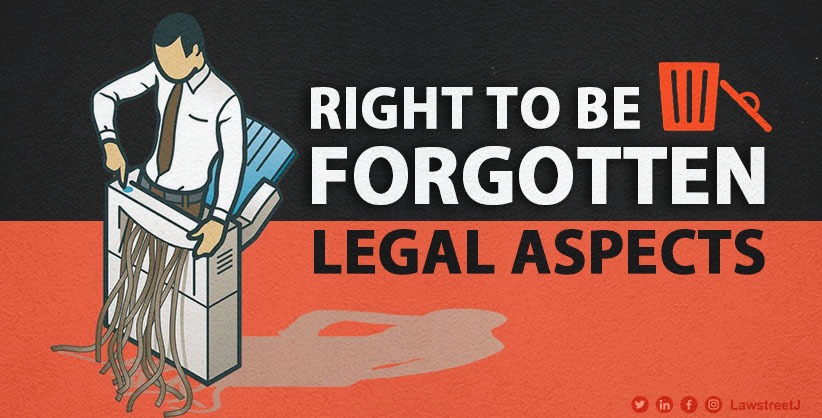Introduction:
In an era dominated by the digital revolution, personal data has become a valuable currency. With the proliferation of online platforms, individuals are continuously generating and sharing vast amounts of personal information. However, the advent of this digital age has raised concerns about privacy and the need to protect personal data. The concept of the "Right to be Forgotten" has emerged as a crucial legal principle that aims to strike a balance between freedom of expression and an individual's right to privacy. This article delves into the legal aspects of the Right to be Forgotten under Indian laws and examines its implications for online platforms.
Understanding the Right to Be Forgotten:
The Right to be Forgotten, also known as the right to erasure, empowers individuals to request the removal of their personal information from online platforms. It allows individuals to regain control over their digital footprint, especially in cases where the information is outdated, irrelevant, or infringes upon their privacy rights. The right to erasure aims to ensure that personal data is not indefinitely available online and that individuals have the ability to shape their online identities.
Legal Framework in India:
In India, the legal framework governing the Right to be Forgotten is primarily based on the right to privacy enshrined in Article 21 of the Constitution of India. The Supreme Court of India, in its landmark judgment in the case of Justice K.S. Puttaswamy (Retd.) v. Union of India, recognized the right to privacy as a fundamental right. This recognition forms the cornerstone for the development and implementation of data protection laws and regulations in the country.
Additionally, the Information Technology (Reasonable Security Practices and Procedures and Sensitive Personal Data or Information) Rules, 2011, issued under the Information Technology Act, 2000, provide certain safeguards and obligations on organizations handling personal data. These rules aim to ensure the protection of personal information and lay down procedures for the removal and deletion of such information upon request.
Challenges and Considerations:
While the Right to be Forgotten presents significant advantages in terms of privacy protection, it also poses challenges for online platforms and legal authorities. Balancing the right to erasure with freedom of expression can be a complex task. Determining the criteria for removal requests and striking a fair balance between privacy and public interest is crucial.
Burstiness:
In the Indian legal context, the courts have acknowledged the importance of taking a contextual approach while determining the legitimacy of removal requests. The factors considered include the nature of the information, its relevance, the time that has elapsed since the publication, the impact on the individual's privacy, and the public interest.
It is essential to recognize that the Right to be Forgotten is not an absolute right and is subject to limitations. It should not unduly hinder the freedom of speech, investigative journalism, or historical records. Striking a delicate balance between individual rights and public interest is crucial for a robust legal framework.
Conclusion:
The Right to be Forgotten provides individuals with a mechanism to regain control over their personal data and protect their privacy in the digital age. In India, the right is firmly rooted in the constitutional guarantee of the right to privacy. However, its implementation must be guided by careful consideration of the competing interests of privacy and freedom of expression. The legal framework needs to strike a balance that ensures the effectiveness of the right while respecting legitimate interests and societal concerns. As technology continues to advance, it becomes imperative for Indian laws to evolve to keep pace with the ever-changing landscape of personal data protection.






![Right to be forgotten upheld by Himachal Pradesh High Court [Read Order]](/secure/uploads/2024/07/lj_6563_ab8166e1-8556-4961-b693-694be2f16d66.webp)




